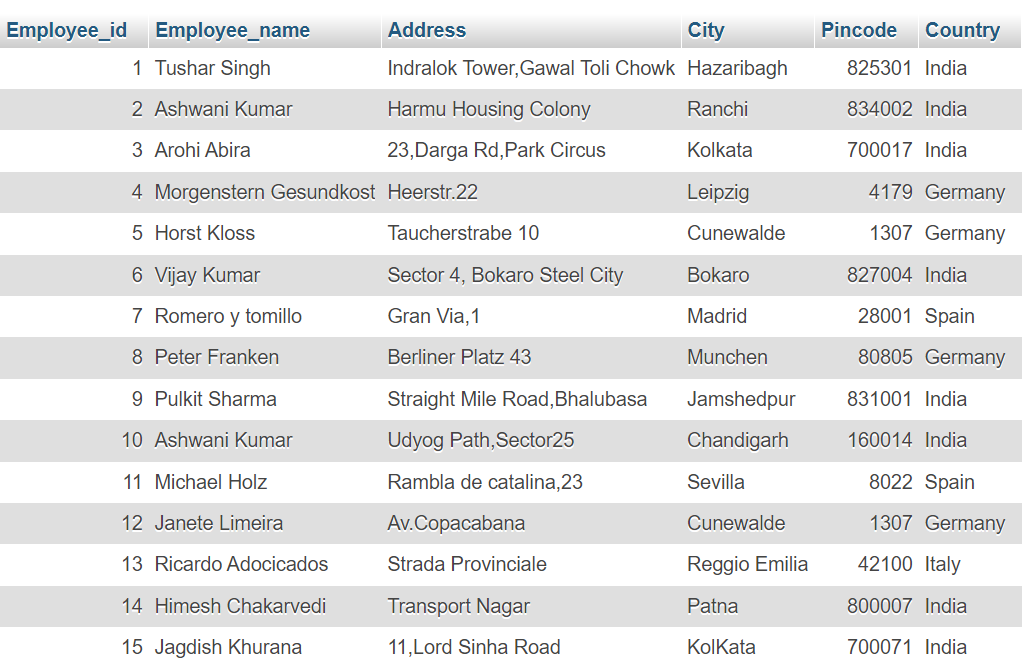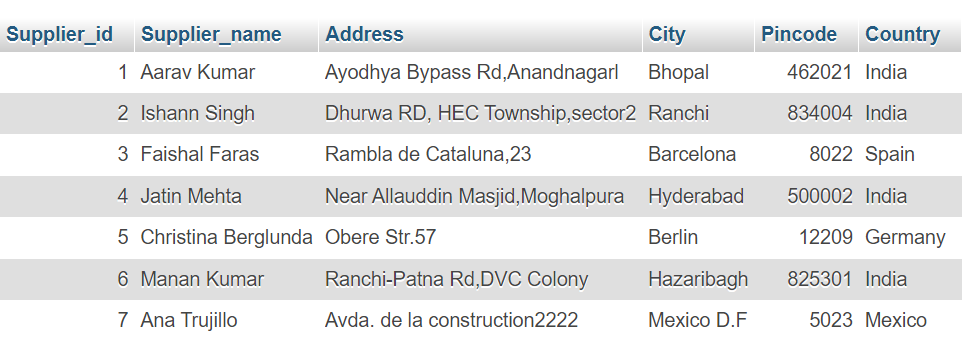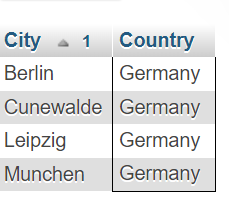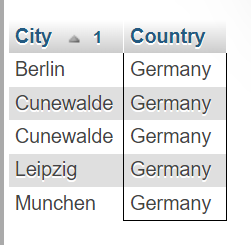The SQL UNION Operator
The UNION operator is used to combine the result-set of two or more SELECT statements.
- The columns must also have similar data types
- Every SELECT statement within UNION must have the same number of columns
- The columns in every SELECT statement must also be in the same order
UNION Syntax:
SELECT column_name(s)
FROM table1
UNION
SELECT column_name(s)
FROM table2 ;
UNION ALL Syntax:
The UNION operator selects only distinct values by default. To allow duplicate values, use UNION ALL:
SELECT column_name(s)
FROM table1
UNION ALL
SELECT column_name(s)
FROM table2 ;
Note: The column names in the result-set are usually equal to the column names in the first SELECT statement.
Demo Employee table
This employee table is used for examples:

Demo Supplier table
This supplier table is used for examples:

SQL UNION Example
The following SQL statement returns the countries (only distinct values) from both the "employee" and the "supplier" table:
Example:
SELECT Country
FROM employee
UNION
SELECT Country
FROM supplier
ORDER BY Country;

SQL UNION ALL Example
The following SQL statement returns the Country (duplicate values also) from both the "employee" and the "Supplier" table:
Example:
SELECT Country
FROM employee
UNION ALL
SELECT Country
FROM supplier
ORDER BY Country;

SQL UNION With WHERE
The following SQL statement returns the German cities (only distinct values) from both the "employee" and the "Supplier" table:
Example:
SELECT City,Country
FROM employee
WHERE Country= 'Germany'
UNION
SELECT City,Country
FROM supplier
WHERE Country= 'Germany'
ORDER BY City;

SQL UNION ALL With WHERE
The following SQL statement returns the German cities (duplicate values also) from both the "employee" and the "supplier" table:
Example:
SELECT City,Country
FROM employee
WHERE Country= 'Germany'
UNION ALL
SELECT City,Country
FROM supplier
WHERE Country= 'Germany'
ORDER BY City;

